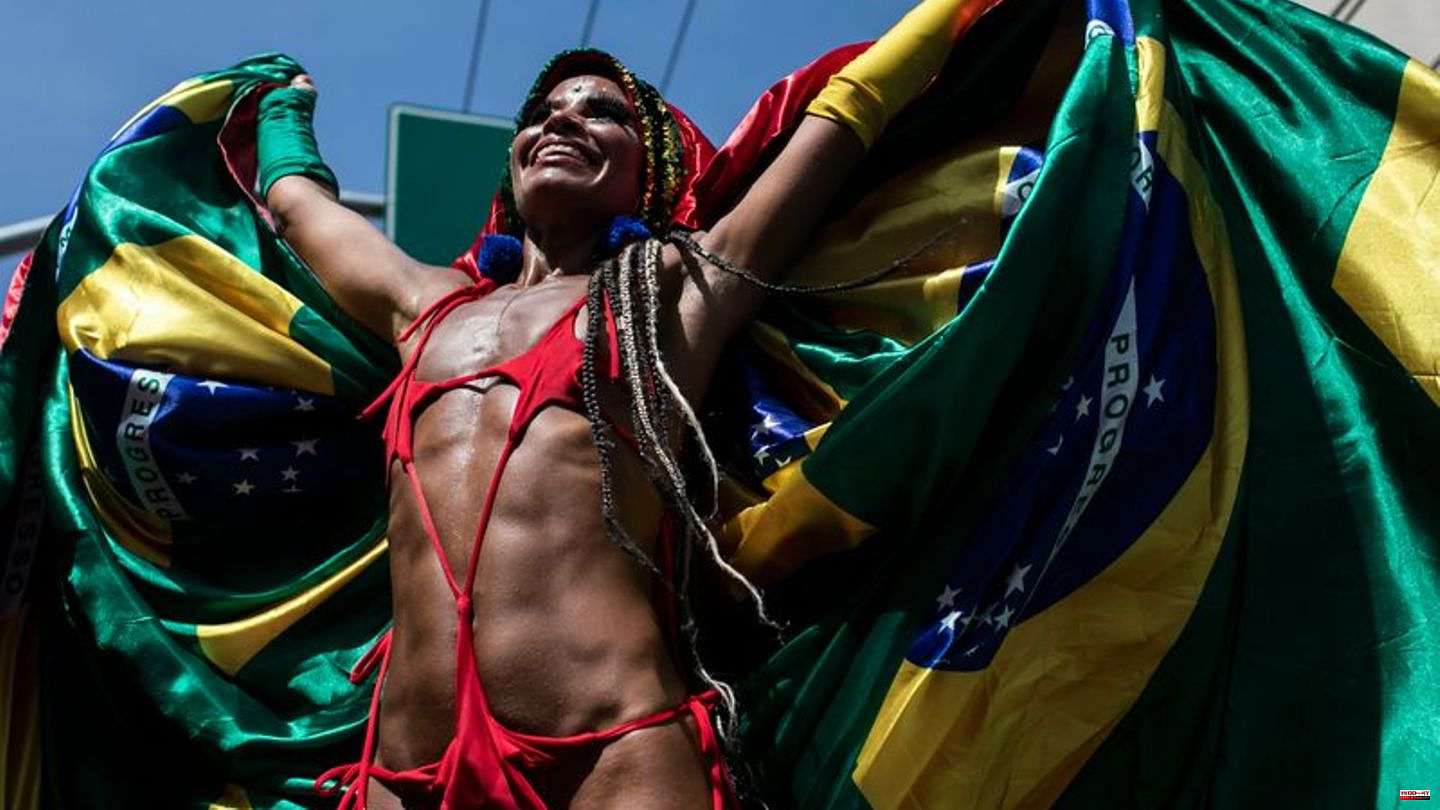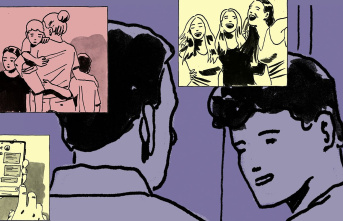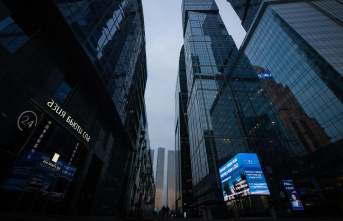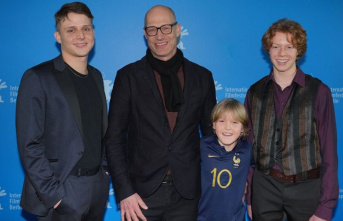Magnificent costumes and floats, rousing songs and sounds: the world-famous parades in the Sambodrome have begun in Rio. It all started on Friday evening (local time) with the "Arranco do Engenho de Dentro" samba school. She dedicated her parade in the rain to Zé Espinguela, organizer of the first competition of samba schools in Rio de Janeiro in 1929. The competition was then held where the "Arranco" school is located today.
But the samba schools also showed themselves to be modern: for the first time a man paraded with the "Arranco" as the flag bearer in the sambodrome. The twelve top schools perform until the early hours on Sunday and Monday.
Tens of thousands in the stands and millions in front of the television in Brazil and around the world usually follow the parades on the oversized catwalk designed by the famous Brazilian architect Oscar Niemeyer in the 1980s.
5.5 million fans expected
The Rio Carnival is known as the "biggest party in the world". The city expects revenues of around 810 million euros, the tourism agency Riotur expects up to 5.5 million carnival fans in the city. The hotels recorded an occupancy rate of 91.5 percent.
Mayor Eduardo Paes opened this year's carnival on Friday afternoon (local time) by handing over the city key to "King Momo". After two years in which the pandemic prevented or restricted the festival, Paes, who had also pushed ahead with the corona vaccinations with a view to the carnival, said: "Thanks to science, thanks to medicine, thanks to the public health system and those who are vaccinated, we can celebrate life again by meeting at the Rio Carnival."
In Brazil, the healthcare system collapsed at the height of the 2021 pandemic. Mayor Paes has canceled the street carnival for the past two years because of Corona. Only the parades in the Sambodrome took place after a postponement in April 2022.
445 moves approved
But now the carnival is back in full force. The city administration approved 445 parades of carnival groups - so-called blocos - this season. Already in the afternoon, the first official "Blocos" like the traditional "Carmelitas" in the bohemian district of Santa Teresa were parading through the streets of Rio or playing in the squares.
Tens of thousands of "Cariocas", as the inhabitants of Rio are called, and tourists got in the mood for the carnival last weekend with musicians and dancers on the streets of various parts of the city. It is midsummer in the southern hemisphere, and it is particularly hot at the moment. The thermometer showed 41.8 degrees on Friday, the perceived temperature, which differs from the actual due to humidity or wind, was 53.8 degrees.
But the Rio Carnival is also more than a hot party: after the storming of the government district in Brasília on January 8, Mayor Paes proclaimed the "Carnival of Democracy". It is necessary to celebrate democracy, Paes said on Friday: "Once again, the Brazilian people and the Brazilian institutions have proven to be stronger." An unwritten law actually says that the melodies and lyrics of the parades in the sambodrome must not be overly critical.
During the parades, each samba school takes the viewer into another world - usually one where everything is fine. The "Acadêmicos de Vigário Geral" school, for example, took many with them into childhood with the theme "The imagination - factory of joy". But there have also been political comments in recent years. For example, the winning school "Mangueira" 2020 criticized the Bolsonaro government.
Jury awards grades
The "blocos" have always formed something like a parallel carnival to the strictly regulated parades in the sambodrome, in which a jury awards marks like in figure skating. This year, however, they are also remarkably organized, due to the forced break they had a lot of time to prepare.
However, the "blocos" have retained a great deal of spontaneity and creativity. In Whatsapp groups, carnival fans exchange information about where a "Bloco" is currently located and which one is going next. "We look all the time to go to as many 'blocos' as possible," says carnival fan Samara Curi. "We thought something would change after the pandemic. That people would be discouraged. But it didn't change anything. That's great."












